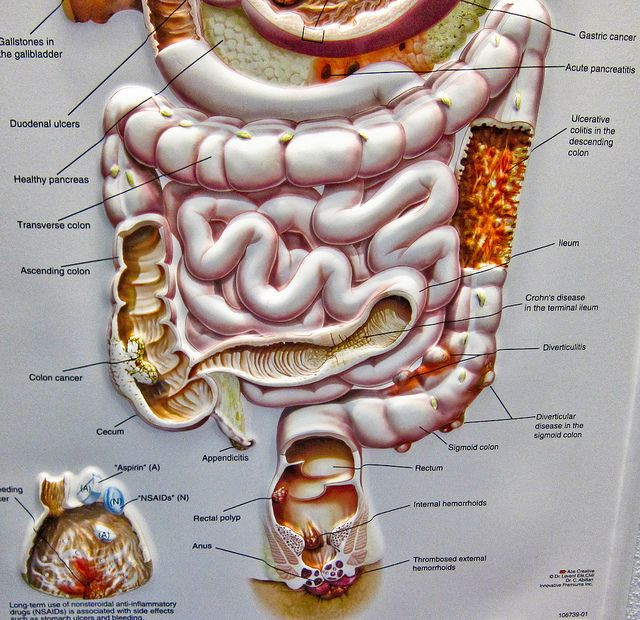Colon Cancer Screening Recommended At Age 50 And Up, But 15% Of Patients May Get This Cancer Earlier

Colorectal cancer is often considered a disease that affects primarily older men, yet this perception may be changing. An extensive analysis of recent data showed that one in every seven colorectal cancer patients was younger than 50. The University of Michigan study raises questions about the current guidelines to begin screening at age 50.
Signs of colorectal cancer, often called the “symptomless cancer,” include anemia, a dramatic change in the size or frequency of bowel movements, and dark blood or blood mixed with stool, (sometimes appearing as black threads), in bowel movements. Because these symptoms may be nonexistent, mild, or infrequent, many people are not aware of their condition until their malignancy becomes advanced and spreads into the lymph nodes. A colonoscopy is the usual screening test, but stool tests are also effective for some people. If you are worried, you can request your primary care physician provide you with one of these simple stool tests, no matter your age.
Younger Patients Increasing
Seeing a recent rise in cancer cases among younger people, a team led by Dr. Samantha Hendren conducted a study of the nationally representative Surveillance, Epidemiology, and End Results (SEER) Program of the National Cancer Insitute to assess age and treatment patterns among colorectal patients. Specifically, they gathered and analyzed data from patients diagnosed in the United States between 1998 and 2011. Their results point to important changes.
Of more than 258,000 total colorectal cancer patients, 37,847 (about 15 percent) were younger than 50. These younger-than-expected patients were more likely to be diagnosed with either regional or distant malignancies, both of which are more dangerous than localized tumors.
In terms of treatment, younger patients suffering with a distant metastasis — where the cancer has spread from an original tumor — were more likely to undergo surgery than older patients; 72 percent versus 63 percent. Radiation therapy was more likely to be used with younger rectal cancer patients than in older patients; 53 percent versus 48 percent.
By various measures, younger patients saw more positive results. Despite the tendency to have more advanced disease when diagnosed, younger-than-50 colorectal cancer patients overall lived slightly longer without a cancer recurrence. With regard to localized disease, the five-year survival rate was 95.1 percent for younger patients versus 91.9 percent for older patients, with regard to regional disease, 76 percent versus 70.3 percent, and with regard to distant disease 21.3 percent versus 14.1 percent.
“These findings suggest the need for improved risk assessment and screening decisions for younger adults,” wrote the researchers in the study. They believe their work is a wake-up call to the medical community, which should be looking for the signs of colorectal cancer in patients younger than 50.
If age 50 is maintained as the recommended time to begin screening, this study suggests that nearly 15 percent of all patients may be caught late in the process of disease. By comparison, breast cancer screening is recommended to begin at age 40. Less than 5 percent of invasive breast cancers occur in women under that age.
Source: Abdelsattar Z, Wong S, Regenbogen S, et al. Colorectal Cancer Outcomes and Treatment Patterns in Patients Too Young for Average-Risk Screening. CANCER. 2016.
Published by Medicaldaily.com



























